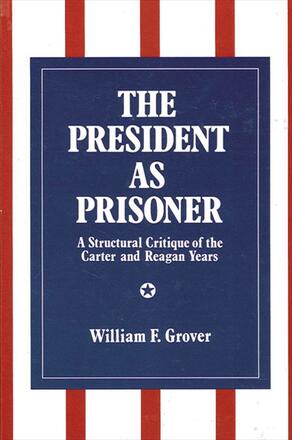
The President as Prisoner
A Structural Critique of the Carter and Reagan Years
Alternative formats available from:
Description
This book focuses, not on the Constitutional balance of power between Congress and the White House—a focus that restricts analysis to questions of means—but on the more unsettling and often unexamined question of the ends of the presidency and American public policy. It offers a "structural theory" which links what a president can do to the underlying interests behind—and ideology of—the capitalist state. Structural theory insists upon an encounter between theories of the state and theories of the presidency, and in so doing steers the field of presidential studies into largely uncharted territory.
Grover explores the tradeoffs and limitations encountered by Presidents Carter and Reagan as they pursued the goals of economic prosperity and national security. He argues that the limitations imposed on the presidency are more complicated than the personal deficiencies of a particular person. Such structural limitations, Grover notes, are not merely constitutional but economic and statist. His analogy of the "president as prisoner" in this larger sense is compelling.
William F. Grover is Assistant Professor of Political Science at Saint Michael's College in Winooski, Vermont. He has been a visiting instructor at both Moravian College and Smith College.
Reviews
"Daring arguments are among the easiest to criticize. This book says a lot that needs to be said, and does so well. A strong thumbs up. " — Robert Spitzer, State University of New York, Cortland